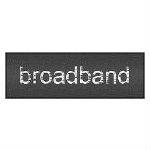 Concerns about the potential for fraud has led the FCC to consider limiting Lifeline payments for broadband Internet or voice service to low-income households participating in the federal Supplemental Nutrition Assistance Program (SNAP). Furthermore, applicants would need to obtain vouchers monthly or make use of Electronic Benefits Transfer (EBT) systems in order to receive benefits.
Concerns about the potential for fraud has led the FCC to consider limiting Lifeline payments for broadband Internet or voice service to low-income households participating in the federal Supplemental Nutrition Assistance Program (SNAP). Furthermore, applicants would need to obtain vouchers monthly or make use of Electronic Benefits Transfer (EBT) systems in order to receive benefits.
These restrictions would effectively disqualify around 1 million low-income Americans from receiving Lifeline funds to sign up for Lifeline service, according to Consumer Action, which organized a petition opposing the imposition of the new restrictions.
With 2,585 signatures, the petition shows that consumers share Consumer Action’s concerns, the consumer advocacy organization states in a January 7 news release.
FCC Lifeline Program Restrictions
“Roughly one million of the nation’s poorest people will be cut off SNAP over the course of 2016, due to the return in many areas of a three-month limit on SNAP benefits for unemployed adults aged 18-50 who aren’t disabled or raising minor children, Consumer Action executive director and member of the FCC consumer advisory committee Ken McEldowney stated.
¨When you add to that that the elderly and other key groups are seriously underrepresented on SNAP, you have a prescription for several million people who are eligible today for Lifeline being forced out of the program in a needless and entirely unfair way.”
Similarly, requiring participants to use vouchers, which they would have to obtain every month, or some equivalent arrangement and submit them individually to subsidize their phone and Internet service bills would dissuade low-income households from participating, according to Consumer Action.
“We fear that a voucher system would be so complicated, and possibly require consumers to incur ATM or other charges, that it would result in a further sharp reduction in the number of Lifeline subscribers,” McEldowney continued.
Broadband Supporters
Populist by nature, support for extending Lifeline program benefits to cover broadband access for low-income households is broad-based. Organized by Next Century Cities, a bipartisan group of mayors and officials from 44 cities sent a letter to the FCC in December supporting the FCC’s proposal to direct Lifeline funding toward broadband.
Previously, a bipartisan group of 61 interest groups sent a letter to FCC chairman Tom Wheeler advocating the FCC adopt such a proposal while also offering recommendations as to how such a benefit program should be structured.


